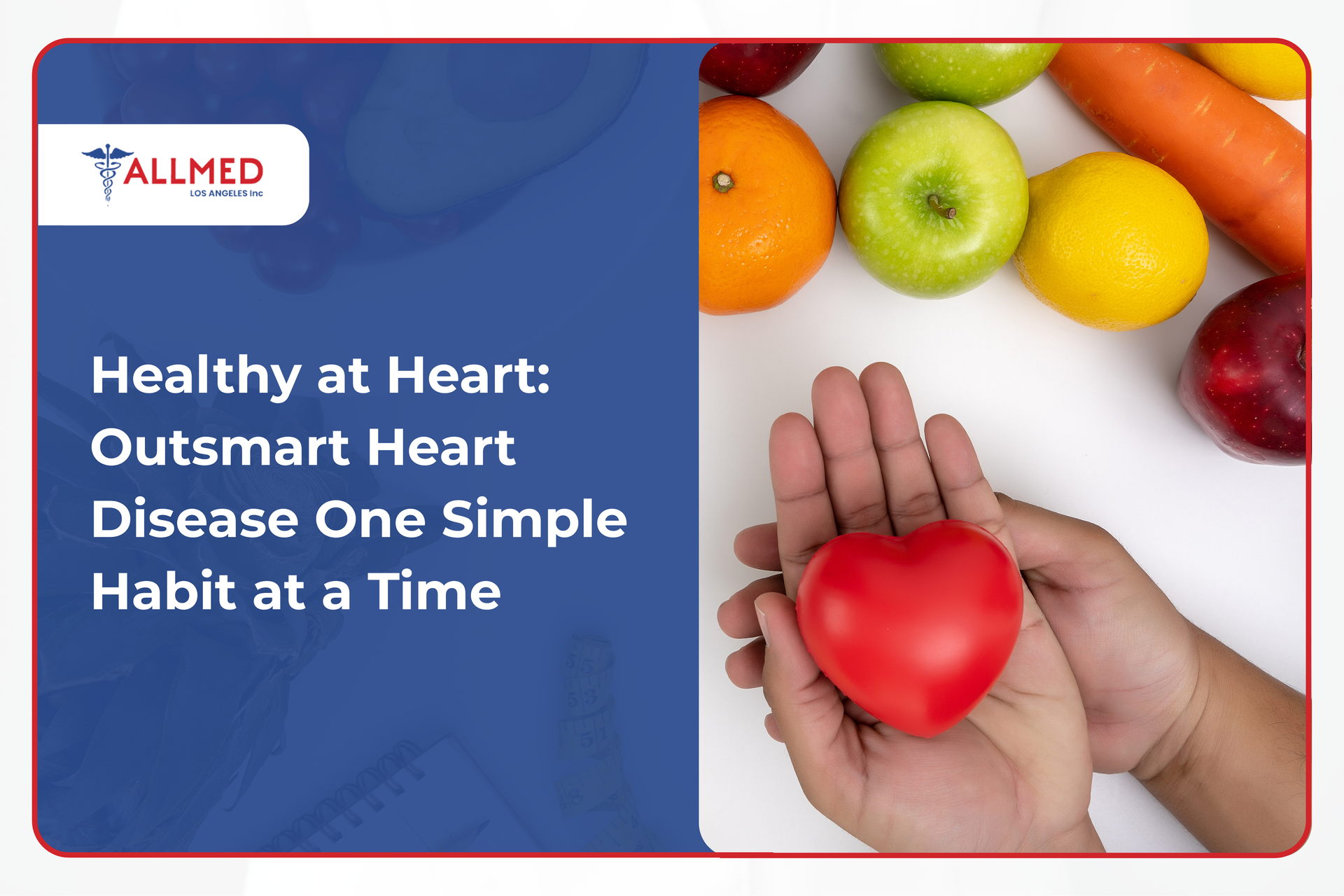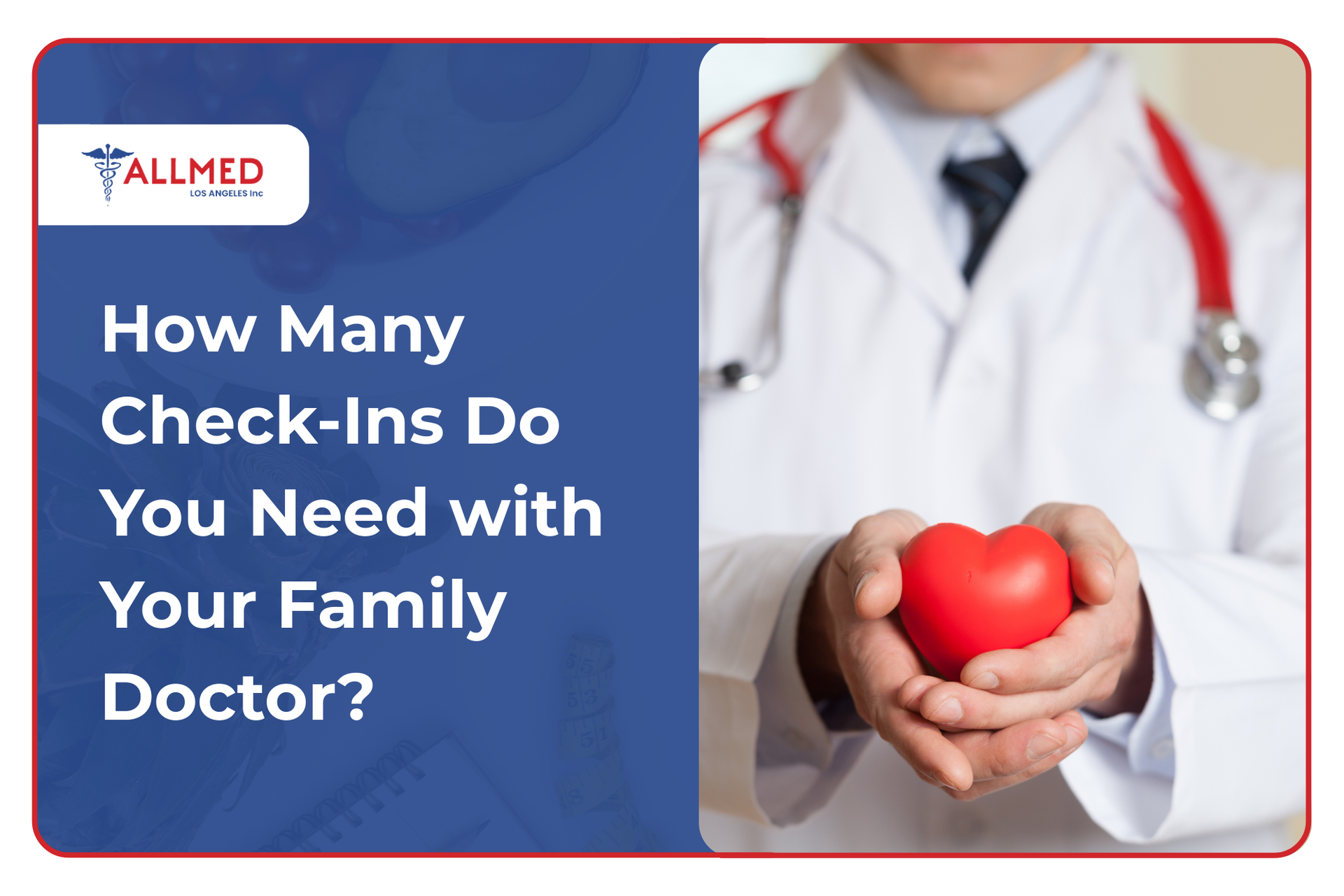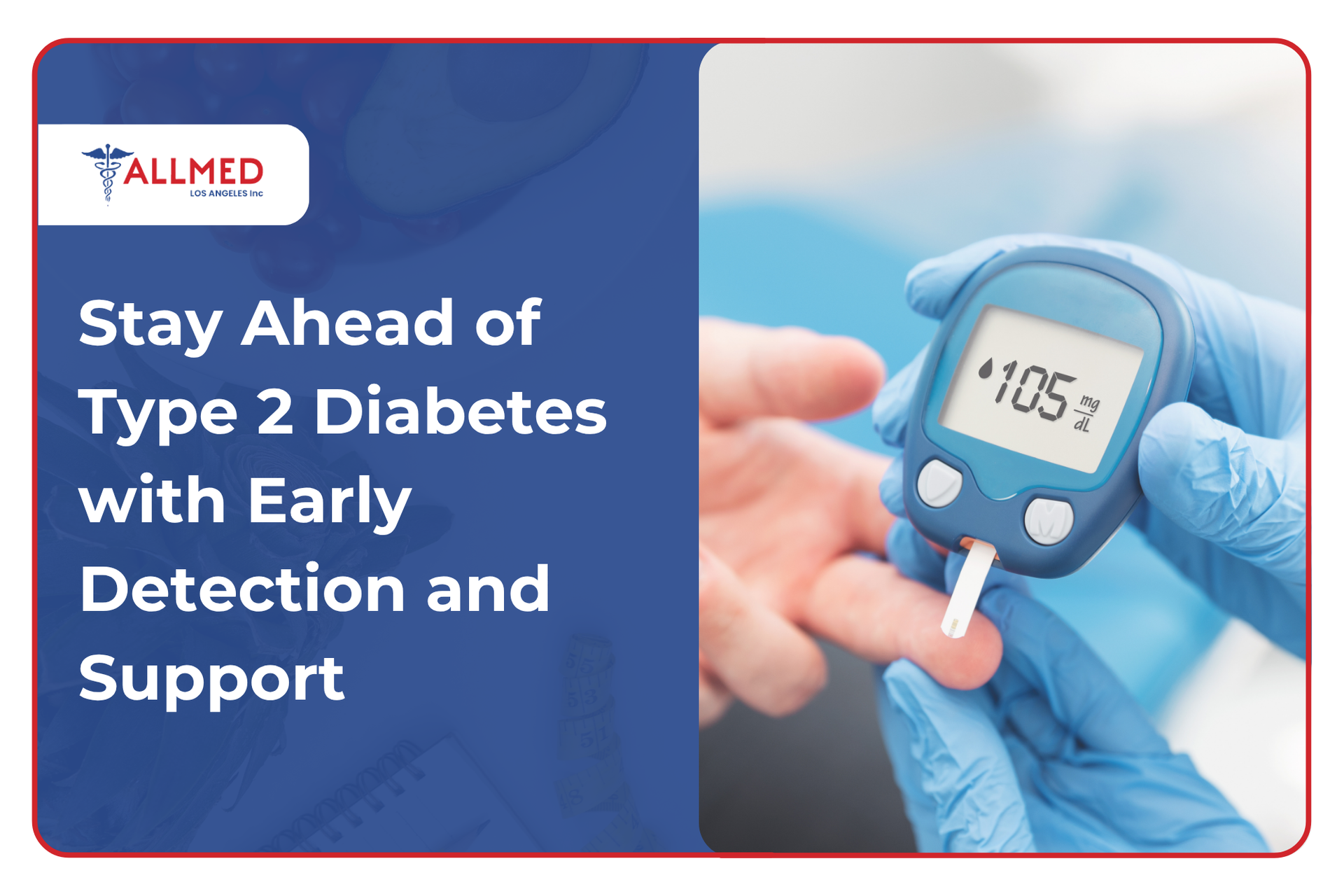The heart never takes a break, yet too many of us take it for granted until it’s too late. According to the Centers for Disease Control and Prevention (CDC), heart disease is the leading cause of death in the US, with one person dying every 34 seconds.
It sounds alarming, but here’s the hopeful part: You have more control over your heart health than you might think. Eating heart-healthy foods, exercising daily, and checking your blood pressure periodically are just a few of the things you can do to keep your heart in top shape.
At
Allmed LA, we’re here to help you
put your heart first. This guide outlines practical steps to include healthy habits in your daily routine. Together, we can lower your risks and boost heart health through natural, proactive ways.
Stronger Heart, Brighter Days
How Do Heart Attacks Happen?
Coronary heart disease (CHD) happens when the arteries carrying blood to your heart get blocked or narrowed by the buildup of plaque, a sticky combination of fat, cholesterol, and other substances. Because of limited blood flow, your heart doesn’t get enough supply of oxygen, leading to chest pains or, worse, a heart attack.
The good news is that healthy, everyday habits, such as managing stress and making heart-smart choices, can help maintain healthy arteries and keep heart disease at bay.
Watch Out: 7 Big Heart Health Risks
Knowing what leads to heart attacks is the foundation of prevention, but plaque buildup is just one of the factors that increase your risk. Let’s take a look at the habits and conditions that put strain on the blood vessels:
1. High blood pressure puts extra pressure on your heart and arteries.
✅ Keep it in check: Monitor your blood pressure often, cut back on salt, and stay active.
2. Smoking tobacco weakens your blood vessels and speeds up plaque buildup.
✅ Protect your heart: Quit smoking and avoid inhaling secondhand smoke.
3. High cholesterol leads to clogged arteries and impaired blood circulation.
✅ Lower cholesterol naturally: Eat more fruits, veggies, and healthy fats.
4. Diabetes causes high blood sugar, which increases your risk of developing heart disease.
✅ Stay in control: Manage your blood sugar with healthy meals and exercise.
5. Obesity adds stress on your heart due to extra, unmanageable weight.
✅ Take small steps: Eat balanced meals and move more each day.
6. A sedentary lifestyle worsens other heart attack risk factors.
✅ Get moving: Aim for at least 30 minutes of activity daily.
7. Family history can increase the risk of developing heart and stroke-related diseases.
✅ Be proactive: Get
regular screenings and stick to your physician’s advice and recommended routines.
The Silent Killers: Stress, Smoking, and Alcohol
Along with the top risks, stress and alcohol can raise heart attack risk factors, which many people often overlook. Combined with smoking, they quietly put extra strain on your heart.
Stress raises your blood pressure, making your heart work harder than it should. Add smoking and excessive drinking to the mix, and you have the perfect formula for weakening your heart over time.
Many people drink or smoke to cope with stress, only to get stressed further because of the adverse effects. If you’re one of those caught in this loop of unhealthy habits, it’s time to break the cycle.
Knowing how to reduce stress to prevent heart disease—paired with determination and consistency—can reduce the need to de-stress using harmful substances. Sticking to healthy habits, such as deep breathing, taking a walk, or practicing gentle yoga, helps build a stronger heart and overall better health.
Your Roadmap to a Healthier Heart and Happier Tomorrows
Having a healthy heart doesn’t happen overnight. Here’s your roadmap to make it happen.
Adopting a Heart-Healthy Lifestyle
A heart-healthy lifestyle starts with small, everyday habits. Begin by:
- Choosing natural ways to lower blood pressure, like adding more heart-friendly foods to your diet—fresh fruits and vegetables, whole grains, and lean protein.
- Moving your body for at least 30 minutes a day. Go on a brisk walk, dance to your favorite song, grow your garden, or start an exercise routine—whatever keeps you sweating.
- Getting at least seven hours of sleep every night so you wake up refreshed and ready to take on the day.
- Staying hydrated throughout the day supports your body to function at its best.
Stay on Track With Life-Saving Heart Screenings
Healthy habits are your first line of defense, but it never hurts to be extra careful, especially if heart disease runs in your family. Knowing what’s happening inside your body helps you adapt and maintain the best ways to prevent cardiovascular disease.
- Check your blood pressure and cholesterol annually. High numbers often have no symptoms but can quietly harm your heart.
- Get screened for diabetes if you’re at risk. High blood sugar raises your chance of developing heart problems.
- Ask about an EKG or heart imaging if you’re high-risk to help spot hidden issues early.
- See a cardiologist if you have a family history of heart disease or experience unusual symptoms. Chest pain, shortness of breath, or an irregular heartbeat shouldn’t wait.
Natural Ways to Keep Your Heart Strong
What you consume and do every day shapes your heart health more than you might realize. Small, mindful choices starting from the foods you eat to the natural supplements you consider can significantly improve your heart health if you stick to them daily. That’s why we recommend you:
- Add more fiber-rich food sources to your diet, as they are among the best foods to prevent heart attacks and strokes. Eating meals with oats, nuts, and leafy greens—while cutting back on salty and processed foods—can make a big difference in lowering your cholesterol and blood pressure, giving you the best chance to prevent a heart attack.
- Consider safe herbal supplements, but consult your doctor first. Some people incorporate garlic, flaxseed, green tea, and hawthorn berries into their diet to help lower blood pressure, reduce stroke risk, and improve heart health.
- Stay consistent with healthy daily habits. Moving your body, managing stress through nature walks and breathing exercises, and getting enough quality sleep are all organic ways to help prevent coronary heart disease naturally.
Take Action: Steps to Start Today
It’s one thing to know what keeps your heart healthy—it’s another to do it every day. Here are simple ways to get a strong start:
- Stick to 5 daily heart-healthy habits.
- Eat more fruits, veggies, and whole grains.
- Exercise for at least 30 minutes a day.
- Drink plenty of water.
- Sleep 7–9 hours each night.
- Take a moment daily to relax and breathe.
- Build a weekly routine you can consistently follow. Set reminders for your screenings, plan meals, schedule short walks with a friend, or join a fitness class you enjoy. The goal is to make healthy choices part of your week, not just your to-do list.
- Living a healthy lifestyle is so much easier if your loved ones are in on the journey as well. Sharing heart-healthy meals, exercising together, or reminding each other about
heart health checkups also make for great bonding moments.
Protect Your Heart for Life with Allmed LA















